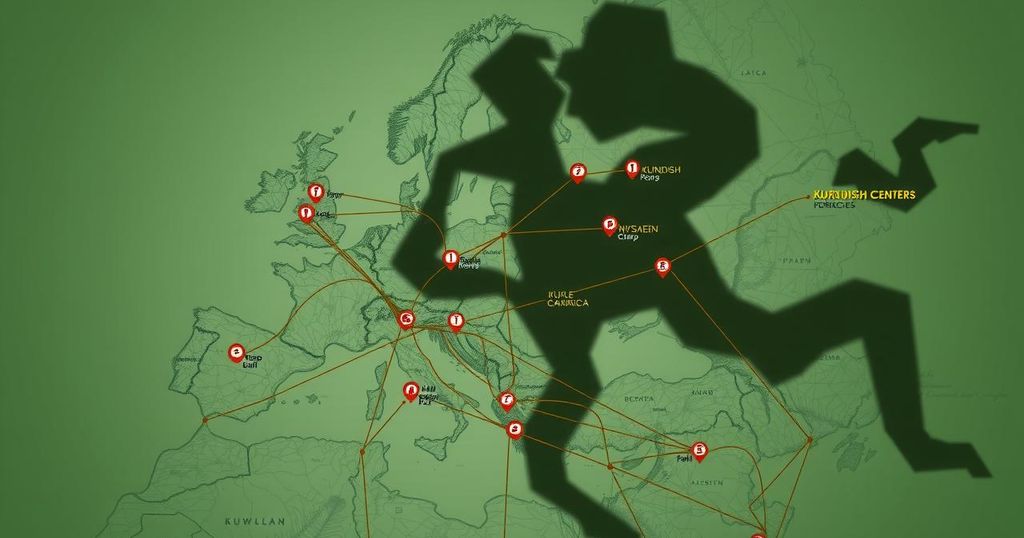The PKK’s Financial Operations in Europe and Their Impact on Turkey’s Ceasefire Negotiations
Research indicates that the PKK maintains a substantial and complex financial network in Europe, leveraging extortion for funds amidst its struggle for Kurdish autonomy. With ongoing violence and threats towards community members, the group poses significant challenges to Turkey’s peace negotiations. The reality of the PKK’s financial dependence raises pertinent questions about its commitment to disarm amidst evolving political frameworks.
Research conducted by Dutch sociologist Joost Jongerden reveals that the Kurdistan Workers’ Party (PKK) operates a substantial financial network in Europe, which poses challenges to an evolving peace process with Turkey. Evidence includes various intelligence reports and court documents detailing how the PKK exerts financial control through extortion and fundraising activities within the Kurdish diaspora, threatening individuals and communities to secure what they label as a “revolutionary tax.”
The PKK not only collects funds through aggressive tactics but also utilizes community centers for ideological indoctrination and financial support. As part of their methods, they exploit crises, such as earthquakes, to prompt donations. The group is deeply embedded in organized crime, with European Union officials noting disturbing connections between PKK operations and drug trafficking. Despite being banned across much of Europe, the PKK successfully disseminates propaganda and rallies support through various events.
Recent statements from PKK leader Abdullah Ocalan suggest a desire to transition from armed conflict towards a more political approach, promoting a message of self-organization and governance among Kurdish communities. However, skepticism remains about whether the PKK can disarm and relinquish its hold on power, especially given substantial financial incentives. Turkey’s insistence on a crack down on PKK activities complicates the negotiations for any ceasefire.
Criminal investigations in countries like France and Sweden have uncovered the extent of the PKK’s fundraising operations, with instances of coercion and threats against those who fail to contribute. Danish court cases have shown how PKK operatives employ intimidation to ensure compliance. In Sweden, an armed incident underscored the PKK’s extensive fundraising activities within the region, as Turkey has intensified its pressure on other European nations to confront the PKK.
The PKK’s organized and methodical collection of funds, estimated to exceed millions annually in Germany alone, reflects its reliance on illicit activities to maintain its military capabilities. The group’s ability to adapt its narrative and operations may influence the future of Kurdish political aspirations in Europe and its relation to Turkey. Despite international condemnation and classification as a terrorist group, the PKK continues to maintain its relevance and operational strength through community ties and organized grudges against perceived enemies.
The ongoing complexities surrounding the PKK’s activities in Europe—the financial incentives, community engagement efforts, and political connections—suggest that the path toward a peace agreement with Turkey may be fraught with challenges as both sides grapple with deep-seated mistrust and strategic interests.
The Kurdistan Workers’ Party’s extensive financial networks within Europe pose a significant obstacle to a potential ceasefire with Turkey. Despite recent calls for peace from leader Abdullah Ocalan, skepticism surrounds the PKK’s ability to disarm, particularly in light of financial gains from operations intertwined with organized crime. As Turkey pressures European nations to confront the PKK, the future of Kurdish political movements remains uncertain amidst these challenges.
Original Source: www.thenationalnews.com




Post Comment